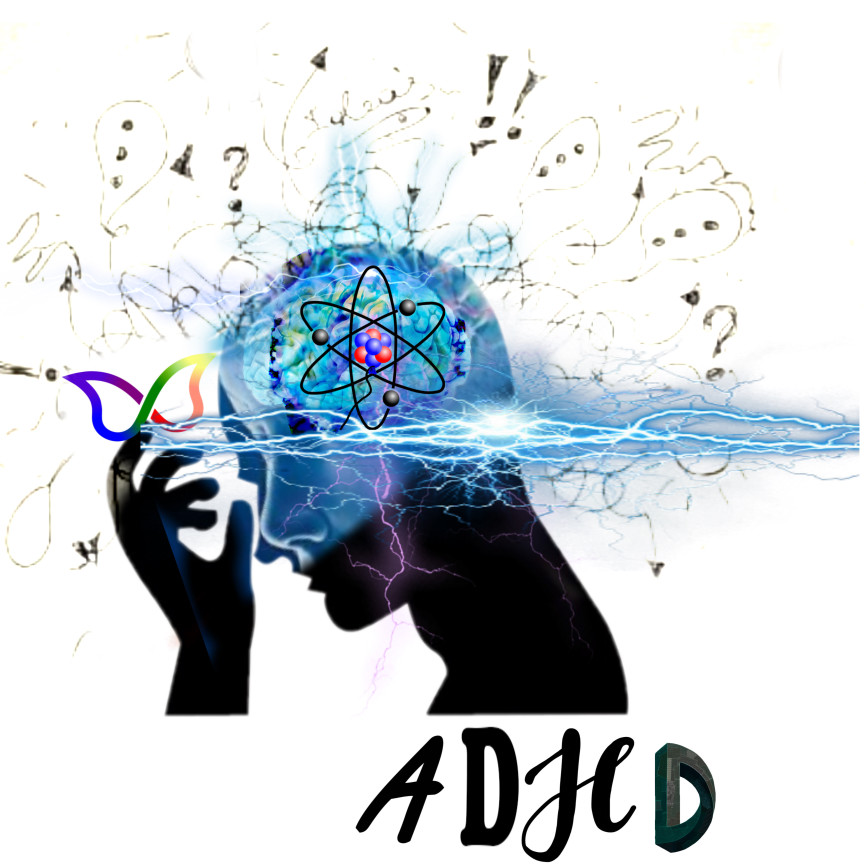ADHD and Anxiety: Symptoms, Connections & Coping Mechanisms
 ADHD and anxiety are closely connected. Anxiety disorder is ADHD’s most common comorbidity — in no small part because the ADHD experience makes for a life characterized by stress and worry.
ADHD and anxiety are closely connected. Anxiety disorder is ADHD’s most common comorbidity — in no small part because the ADHD experience makes for a life characterized by stress and worry.
Adults with attention deficit hyperactivity disorder (ADHD or ADD) lead anxious lives. The nature of ADHD often makes day-to-day life stressful, creating situations and environments fraught with uncertainty – anxiety’s primary fuel.
That is why ADHD cannot be discussed without bringing up anxiety, whether that means pesky, troublesome bouts of worry that present only in specific contexts (like meeting work deadlines or making difficult back-to-school decisions), or full-fledged anxiety disorder. Either way, the link between the two is direct, so much so that anxiety is the most common comorbid diagnosis with adult ADHD.
Is Anxiety a Symptom of ADHD?
Although anxiety alone is not included in the diagnostic criterion for ADHD, the link between the two conditions is strong. Individuals with ADHD are more likely to have an anxiety disorder than are individuals without the condition, with rates approaching 50 percent.
Anxiety refers to our mental and physiological response to a perceived risk or threat. Anxiety disorders, which range from social anxiety disorder to panic attacks to post-traumatic stress disorder (PTSD) and more, are characterized by constant feelings of worry and fear that interfere with daily life.
Some symptoms — like fidgeting and trouble concentrating — are hallmarks of both ADHD and anxiety. As a result, clinicians must rule out anxiety and other mental disorders when diagnosing ADHD, and vice versa.
Does ADHD Make Anxiety Worse?
Individuals diagnosed with ADHD and anxiety disorders tend to have more severe anxiety symptoms than do those without ADHD. But even adults with ADHD who do not meet the diagnostic criteria for anxiety may experience occasional and situational anxiety in their daily lives – precisely because of ADHD, which may cause time blindness, poor working memory, and exaggerated emotions, among other anxiety-producing symptoms.
In one study on adults with ADHD, researchers noted that problems stemming from ADHD — such as tardiness, procrastination, and the prospect of social stigma — all led participants to experience anxiety at many points in their lives, “and once they were anxious, their ADHD symptoms worsened.”
ADHD as a Performance Problem
Individuals with ADHD know what they need to do, but they have problems with implementation – a tension that begets anxiety. This is a big part of what makes ADHD maddening, particularly in adulthood. Barriers to implementation include the following:
- Self-regulatory efficacy: “I know I can do this, but I’m not sure if I can resist distraction or focus.”
- Incautious optimism: Otherwise known as distorted positive thoughts. “I work best at the last minute.”
- Front-end perfectionism: “I have to be in the mood/have enough energy to do something.” These unlikely standards are by far the most common distorted automatic thought within adults with ADHD.
- Emotional dysregulation: While not included in the DSM-5, emotional intensity is a central feature of ADHD. Part of managing anxiety is being able to change and control our emotional states so that we can readily engage in a task. Failing to manage discomfort effectively can lead to avoidance and procrastination, which exacerbates and is exacerbated by anxiety.
Excerpted from “ADHD and Anxiety: Symptoms, Connections & Coping Mechanisms” in ADDitude Magazine. Read the full article online for more information on:
- How You Treat Both ADHD and Anxiety
- ADHD and Anxiety During the Pandemic
- Regulating Emotions, Behaviors & the Mindset
- Other Coping Mechanisms for ADHD and Anxiety
Source: ADDitude Magazine | ADHD and Anxiety: Symptoms, Connections & Coping Mechanisms, https://www.additudemag.com/adhd-and-anxiety-symptoms-coping | Copyright © 1998 – 2022 WebMD LLC
Do you need someone to talk to? To schedule an evaluation or to get advice about your child’s or teen’s challenges, call or email a CHC Care Coordinator at 650.688.3625 or careteam@testing.chconline.org CHC teletherapy services are available now.





